Submitted:
19 May 2023
Posted:
19 May 2023
You are already at the latest version
Abstract
Keywords:
1. Introduction
2. Research Methodology
2.1. Literature Profiling
2.2. Scoping Analysis
2.3. Research Gap Analysis
3. Results and Discussions
3.1. Scoping Analysis Result
Objectives of Smart City Assessment
Methodologies of Smart City Assessment
Frameworks of Smart City Assessment
3.2. Research Gap Analysis Results
4. Conclusions and Recommendations
References
- Sharifi, A. A critical review of selected smart city assessment tools and indicator sets. J. Clean. Prod. 2019, 233, 1269–1283. [Google Scholar] [CrossRef]
- Sharifi, A. A typology of smart city assessment tools and indicator sets. Sustain. Cities Soc. 2020, 53, 101936. [Google Scholar] [CrossRef]
- Bellini, P.; Nesi, P.; Pantaleo, G. IoT-Enabled Smart Cities: A Review of Concepts, Frameworks and Key Technologies. Appl. Sci. 2022, 12, 1607. [Google Scholar] [CrossRef]
- Patrão, C.; Moura, P.; de Almeida, A.T. Review of Smart City Assessment Tools. Smart Cities 2020, 3, 1117–1132. [Google Scholar] [CrossRef]
- Kristiningrum, E.; Kusumo, H. Indicators of Smart City Using SNI ISO 37122:2019. IOP Conf. Series: Mater. Sci. Eng. 2021, 1096, 012013. [Google Scholar] [CrossRef]
- Bhattacharya, T.R.; Bhattacharya, A.; Mclellan, B.; Tezuka, T. Sustainable smart city development framework for developing countries. Urban Res. Pr. 2020, 13, 180–212. [Google Scholar] [CrossRef]
- Shmelev, S.E.; Shmeleva, I.A. Global urban sustainability assessment: A multidimensional approach. Sustain. Dev. 2018, 26, 904–920. [Google Scholar] [CrossRef]
- Adnan, Y.M.; Hamzah, H.; Daud, M.N.; Dali, M.M.; Alias, A. A framework for reconciling user requirements and actual provision for Smart City implementation. present-ed at the SUSTAINABLE CITY 2016, Alicante, Spain, July 2016; pp. 249–256. [Google Scholar]
- Yadav, G.; Mangla, S.K.; Luthra, S.; Rai, D.P. Developing a sustainable smart city framework for developing economies: An Indian context. Sustain. Cities Soc. 2019, 47, 101462. [Google Scholar] [CrossRef]
- Apanaviciene, R.; Vanagas, A.; Fokaides, P.A. Smart Building Integration into a Smart City (SBISC): Development of a New Evaluation Framework. Energies 2020, 13, 2190. [Google Scholar] [CrossRef]
- Mukti, I.Y.; Prambudia, Y. Challenges in Governing the Digital Transportation Ecosystem in Jakarta: A Research Direction in Smart City Frameworks. Challenges 2018, 9, 14. [Google Scholar] [CrossRef]
- Inac, H.; Oztemel, E. An Assessment Framework for the Transformation of Mobility 4.0 in Smart Cities. Systems 2021, 10, 1. [Google Scholar] [CrossRef]
- AlQahtany, A.; Rezgui, Y.; Li, H. A proposed model for sustainable urban planning development for environmentally friendly communities. Arch. Eng. Des. Manag. 2013, 9, 176–194. [Google Scholar] [CrossRef]
- Neffati, O.S.; Sengan, S.; Thangavelu, K.D.; Kumar, S.D.; Setiawan, R.; Elangovan, M.; Mani, D.; Velayutham, P. Migrating from traditional grid to smart grid in smart cities promoted in developing country. Sustain. Energy Technol. Assessments 2021, 45, 101125. [Google Scholar] [CrossRef]
- Razmjoo, A.; Østergaard, P.A.; Denaï, M.; Nezhad, M.M.; Mirjalili, S. Effective policies to overcome barriers in the development of smart cities. Energy Res. Soc. Sci. 2021, 79, 102175. [Google Scholar] [CrossRef]
- Dashkevych, O.; Portnov, B.A. Criteria for Smart City Identification: A Systematic Literature Review. Sustainability 2022, 14, 4448. [Google Scholar] [CrossRef]
- Malek, J.A.; Lim, S.B.; Yigitcanlar, T. Social Inclusion Indicators for Building Citizen-Centric Smart Cities: A Systematic Literature Review. Sustainability 2021, 13, 376. [Google Scholar] [CrossRef]
- Wang, C.; Ghadimi, P.; Lim, M.K.; Tseng, M.-L. A literature review of sustainable consumption and production: A comparative analysis in developed and developing economies. J. Clean. Prod. 2019, 206, 741–754. [Google Scholar] [CrossRef]
- Castelnovo, W.; Misuraca, G.; Savoldelli, A. Smart Cities Governance: The Need for a Holistic Approach to Assessing Urban Participatory Policy Making. Soc. Sci. Comput. Rev. 2016, 34, 724–739. [Google Scholar] [CrossRef]
- Appio, F.P.; Lima, M.; Paroutis, S. Understanding Smart Cities: Innovation ecosystems, technological advancements, and societal challenges. Technol. Forecast. Soc. Chang. 2019, 142, 1–14. [Google Scholar] [CrossRef]
- Eissa, H.T.; El-Nahas, A.N.A. A Proposed Model for Measuring the Performance of Smart Cities in Egypt. ERJ. Eng. Res. J. 2021, 44, 51–71. [Google Scholar] [CrossRef]
- Strielkowski, W.; Veinbender, T.; Tvaronavičienė, M.; Lace, N. Economic efficiency and energy security of smart cities. Econ. Res. Ekon. Istraživanja 2020, 33, 788–803. [Google Scholar] [CrossRef]
- Munasinghe, M. Balanced Inclusive Green Growth (BIGG) Path. 2015. [Google Scholar] [CrossRef]
- Arksey, H.; O’Malley, L. Scoping studies: Towards a methodological framework. Int. J. Soc. Res. Methodol. 2005, 8, 19–32. [Google Scholar] [CrossRef]
- Popov, E.; Semyachkov, K. Smart city assessment matrix. SHS Web Conf. 2021, 94, 01019. [Google Scholar] [CrossRef]
- Klopfer, F.; Westerholt, R.; Gruehn, D. Conceptual Frameworks for Assessing Climate Change Effects on Urban Areas: A Scoping Review. Sustainability 2021, 13, 10794. [Google Scholar] [CrossRef]
- Castanho, M.S.; Ferreira, F.A.F.; Carayannis, E.G.; Ferreira, J.J.M. SMART-C: Developing a “Smart City” Assessment System Using Cognitive Mapping and the Choquet Integral. IEEE Trans. Eng. Manag. 2021, 68, 562–573. [Google Scholar] [CrossRef]
- Agbali, M.; Trillo, C.; Fernando, T.; Oyedele, L.; Ibrahim, I.A.; Olatunji, V.O. Towards a Refined Conceptual Framework Model for a Smart and Sustainable City Assessment. In 2019 IEEE International Smart Cities Conference (ISC2); IEEE: Casablanca, Morocco, 2019; pp. 658–664. [Google Scholar]
- Wu, Y.J.; Chen, J.-C. A structured method for smart city project selection. Int. J. Inf. Manag. 2021, 56, 101981. [Google Scholar] [CrossRef]
- Praharaj, S.; Han, J.H.; Hawken, S. Urban innovation through policy integration: Critical perspectives from 100 smart cities mission in India. City, Cult. Soc. 2018, 12, 35–43. [Google Scholar] [CrossRef]
- Żywiołek, J.; Schiavone, F. Perception of the Quality of Smart City Solutions as a Sense of Residents’ Safety. Energies 2021, 14, 5511. [Google Scholar] [CrossRef]
- Chatterjee, S.; Kar, A.K. Smart Cities in developing economies: A literature review and policy insights. In Proceedings of the 2015 International Conference on Advances in Computing, Communications and Informatics (ICACCI), Kochi, India, 10–13 August 2015; pp. 2335–2340. [Google Scholar] [CrossRef]
- Komninos, N.; Kakderi, C.; Mora, L.; Panori, A.; Sefertzi, E. Towards High Impact Smart Cities: a Universal Architecture Based on Connected Intelligence Spaces. J. Knowl. Econ. 2022, 13, 1169–1197. [Google Scholar] [CrossRef]
- Giffinger, R.; Haindl, G. Smart cities ranking: an effective instrument for the positioning of cities? In 5th International Conference Virtual City and Territory, Barcelona, 2,3 and 4 June 2009; Centre de Política de Sòl i Valoracions, 2009; pp. 703–714. [Google Scholar]
- Meijer, A.J.; Gil-Garcia, J.R.; Bolívar, M.P.R. Smart City Research: Contextual Conditions, Governance Models, and Public Value Assessment. Soc. Sci. Comput. Rev. 2016, 34, 647–656. [Google Scholar] [CrossRef]
- Huang-Lachmann, J.-T. Systematic review of smart cities and climate change adaptation. Sustain. Accounting, Manag. Policy J. 2019, 10, 745–772. [Google Scholar] [CrossRef]
- Adapa, S. Indian smart cities and cleaner production initiatives – Integrated framework and recommendations. J. Clean. Prod. 2018, 172, 3351–3366. [Google Scholar] [CrossRef]
- Lopez, L.J.R.; Castro, A.I.G. Sustainability and Resilience in Smart City Planning: A Review. Sustainability 2020, 13, 181. [Google Scholar] [CrossRef]
- Ameen, R.F.M.; Mourshed, M.; Li, H. A critical review of environmental assessment tools for sustainable urban design. Environ. Impact Assess. Rev. 2015, 55, 110–125. [Google Scholar] [CrossRef]
- Bibri, S.E.; Krogstie, J. Smart sustainable cities of the future: An extensive interdisciplinary literature review. Sustain. Cities Soc. 2017, 31, 183–212. [Google Scholar] [CrossRef]
- Cortese, T.T.P.; de Almeida, J.F.S.; Batista, G.Q.; Storopoli, J.E.; Liu, A.; Yigitcanlar, T. Understanding Sustainable Energy in the Context of Smart Cities: A PRISMA Review. Energies 2022, 15, 2382. [Google Scholar] [CrossRef]
- Tan, S.; Taeihagh, A. Smart City Governance in Developing Countries: A Systematic Literature Review. Sustainability 2020, 12, 899. [Google Scholar] [CrossRef]
- Fernandez-Anez, V.; Velazquez, G.; Perez-Prada, F.; Monzón, A. Smart City Projects Assessment Matrix: Connecting Challenges and Actions in the Mediterranean Region. J. Urban Technol. 2020, 27, 79–103. [Google Scholar] [CrossRef]
- Caird, S.P.; Hallett, S.H. Towards evaluation design for smart city development. J. Urban Des. 2019, 24, 188–209. [Google Scholar] [CrossRef]
- Lim, Y.; Edelenbos, J.; Gianoli, A. Identifying the results of smart city development: Findings from systematic literature review. Cities 2019, 95, 102397. [Google Scholar] [CrossRef]
- Barsi, B. Beyond indicators, new methods in Smart city assessment.
- Wey, W.-M.; Ching, C.-H. The Application of Innovation and Catapult Research Techniques to Future Smart Cities Assessment Framework. In 2018 International Conference on System Science and Engineering (ICSSE); IEEE: New Taipei, 2018; pp. 1–6. [Google Scholar] [CrossRef]
- Bryan, G.; Glaeser, E.; Tsivanidis, N. Cities in the Developing World. Annu. Rev. Econ. 2020, 12, 273–297. [Google Scholar] [CrossRef]
- Gupta, P.; Chauhan, S.; Jaiswal, M.P. Classification of Smart City Research - a Descriptive Literature Review and Future Research Agenda. Inf. Syst. Front. 2019, 21, 661–685. [Google Scholar] [CrossRef]
- Dameri, R.P.; Benevolo, C.; Veglianti, E.; Li, Y. Understanding smart cities as a glocal strategy: A comparison between Italy and China. Technol. Forecast. Soc. Chang. 2019, 142, 26–41. [Google Scholar] [CrossRef]
- Bjørner, T. The advantages of and barriers to being smart in a smart city: The perceptions of project managers within a smart city cluster project in Greater Copenhagen. Cities 2021, 114, 103187. [Google Scholar] [CrossRef]
- Sharma, M.; Joshi, S.; Kannan, D.; Govindan, K.; Singh, R.; Purohit, H.C. Internet of Things (IoT) adoption barriers of smart cities’ waste management: An Indian context. J. Clean. Prod. 2020, 270, 122047. [Google Scholar] [CrossRef]
- Sharifi, A. A typology of smart city assessment tools and indicator sets. Sustain. Cities Soc. 2020, 53, 101936. [Google Scholar] [CrossRef]
- Rocha, N.P.; Bastardo, R.; Pavão, J.; Santinha, G.; Rodrigues, M.; Rodrigues, C.; Queirós, A.; Dias, A. Smart Cities’ Applications to Facilitate the Mobility of Older Adults: A Systematic Review of the Literature. Appl. Sci. 2021, 11, 6395. [Google Scholar] [CrossRef]
- Ismagiloiva, E.; Hughes, L.; Rana, N.; Dwivedi, Y. Role of Smart Cities in Creating Sustainable Cities and Communities: A Systematic Literature Review. In ICT Unbounded, Social Impact of Bright ICT Adoption; Y. Dwivedi, E. Ayaburi, R. Boateng, and J. Effah, Eds., in IFIP Advances in Information and Communication Technology, vol. 558; Springer International Publishing: Cham, 2019; pp. 311–324. [Google Scholar] [CrossRef]
- Kumar, H.; Singh, M.K.; Gupta, M.; Madaan, J. Moving towards smart cities: Solutions that lead to the Smart City Transformation Framework. Technol. Forecast. Soc. Chang. 2020, 153, 119281. [Google Scholar] [CrossRef]
- Ruhlandt, R.W.S. The governance of smart cities: A systematic literature review. Cities 2018, 81, 1–23. [Google Scholar] [CrossRef]
- Kummitha, R.K.R.; Crutzen, N. Smart cities and the citizen-driven internet of things: A qualitative inquiry into an emerging smart city. Technol. Forecast. Soc. Chang. 2019, 140, 44–53. [Google Scholar] [CrossRef]
- Abu-Rayash, A.; Dincer, I. Development of integrated sustainability performance indicators for better management of smart cities. Sustain. Cities Soc. 2021, 67, 102704. [Google Scholar] [CrossRef]
- Yigitcanlar, T. Kamruzzaman Does smart city policy lead to sustainability of cities? Land Use Policy 2018, 73, 49–58. [Google Scholar] [CrossRef]
- Fu'Adi, D.K.; Arief, A.; Sensuse, D.I.; Syahrizal, A. Conceptualizing Smart Government Implementation in Smart City Context: A Systematic Review. In 2020 Fifth International Conference on Informatics and Computing (ICIC); IEEE: Gorontalo, Indonesia, 2020; pp. 1–7. [Google Scholar] [CrossRef]
- Ullah, F.; Qayyum, S.; Thaheem, M.J.; Al-Turjman, F.; Sepasgozar, S.M. Risk management in sustainable smart cities governance: A TOE framework. Technol. Forecast. Soc. Chang. 2021, 167, 120743. [Google Scholar] [CrossRef]
- Angelidou, M. Smart city policies: A spatial approach. Cities 2014, 41, S3–S11. [Google Scholar] [CrossRef]
- Wahab, N.S.N.; Seow, T.W.; Radzuan, I.S.M.; Mohamed, S. A Systematic Literature Review on The Dimensions of Smart Cities. IOP Conf. Series: Earth Environ. Sci. 2020, 498, 012087. [Google Scholar] [CrossRef]
- Hoang, G.T.T.; Dupont, L.; Camargo, M. Application of Decision-Making Methods in Smart City Projects: A Systematic Literature Review. Smart Cities 2019, 2, 433–452. [Google Scholar] [CrossRef]
- Aljowder, T.; Ali, M.; Kurnia, S. Systematic literature review of the smart city maturity model. In 2019 International Conference on Innovation and Intelligence for Informatics, Computing, and Technologies (3ICT); IEEE: Sakhier, Bahrain, 2019; pp. 1–9. [Google Scholar] [CrossRef]
- Bilal, M.; et al. Smart Cities Data: Framework, Applications, and Challenges. In Handbook of Smart Cities; Augusto, J. C., Ed.; Springer International Publishing: Cham, 2020; pp. 1–29. [Google Scholar] [CrossRef]
- Adiyarta, K.; Napitupulu, D.; Syafrullah, M.; Mahdiana, D.; Rusdah, R. Analysis of smart city indicators based on prisma : systematic review. IOP Conf. Ser. Mater. Sci. Eng. 2020, 725, 012113. [Google Scholar] [CrossRef]
- Hamamurad, Q. H.; Jusoh, N. M.; Ujang, U. Concept and Evaluating of Smart City. 2022. Available online: https://jagst.utm.my.
- Albino, V.; Berardi, U.; Dangelico, R.M. Smart Cities: Definitions, Dimensions, Performance, and Initiatives. J. Urban Technol. 2015, 22, 3–21. [Google Scholar] [CrossRef]
- Popov, E.; Semyachkov, K. Smart city assessment matrix. SHS Web Conf. 2021, 94, 01019. [Google Scholar] [CrossRef]
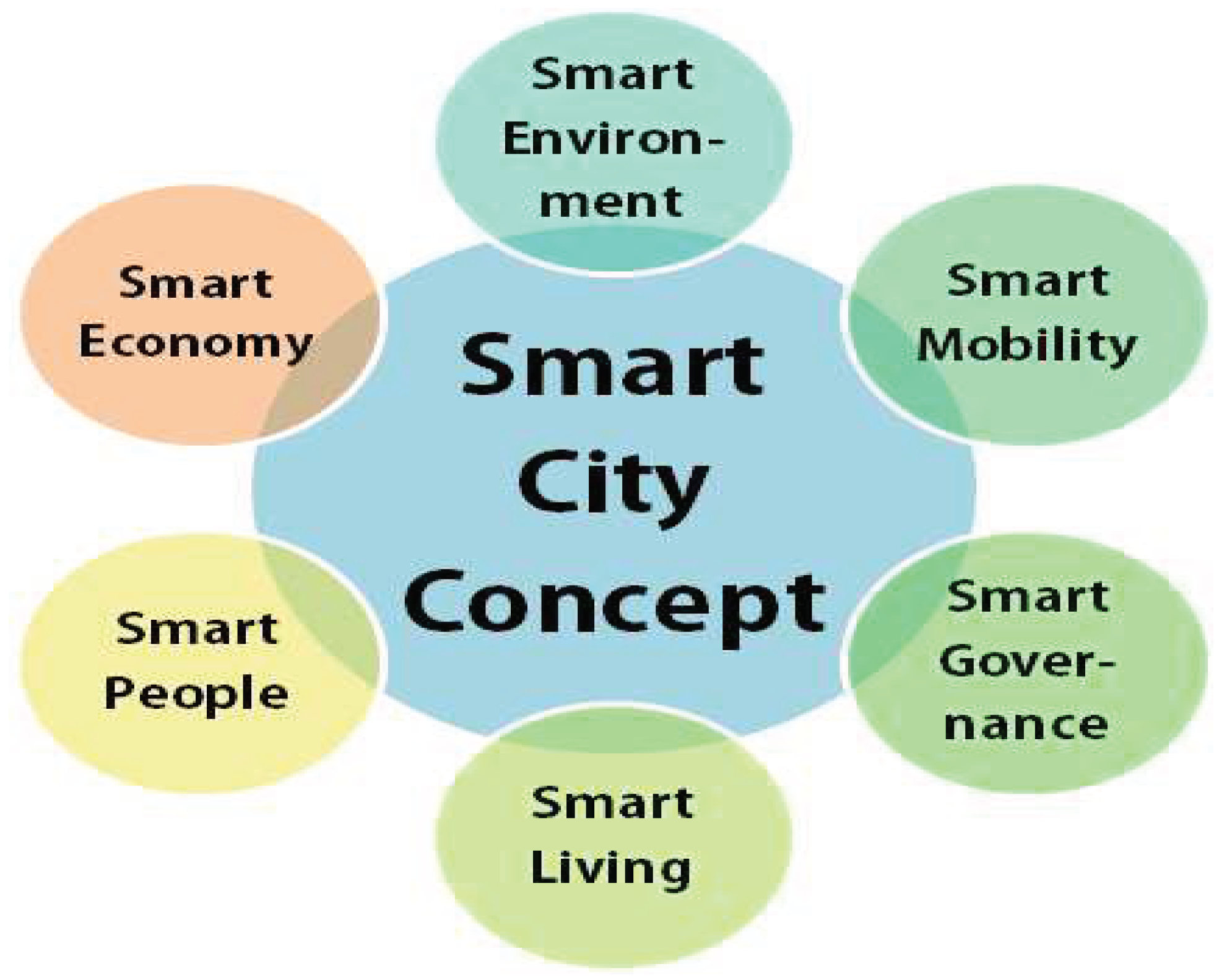
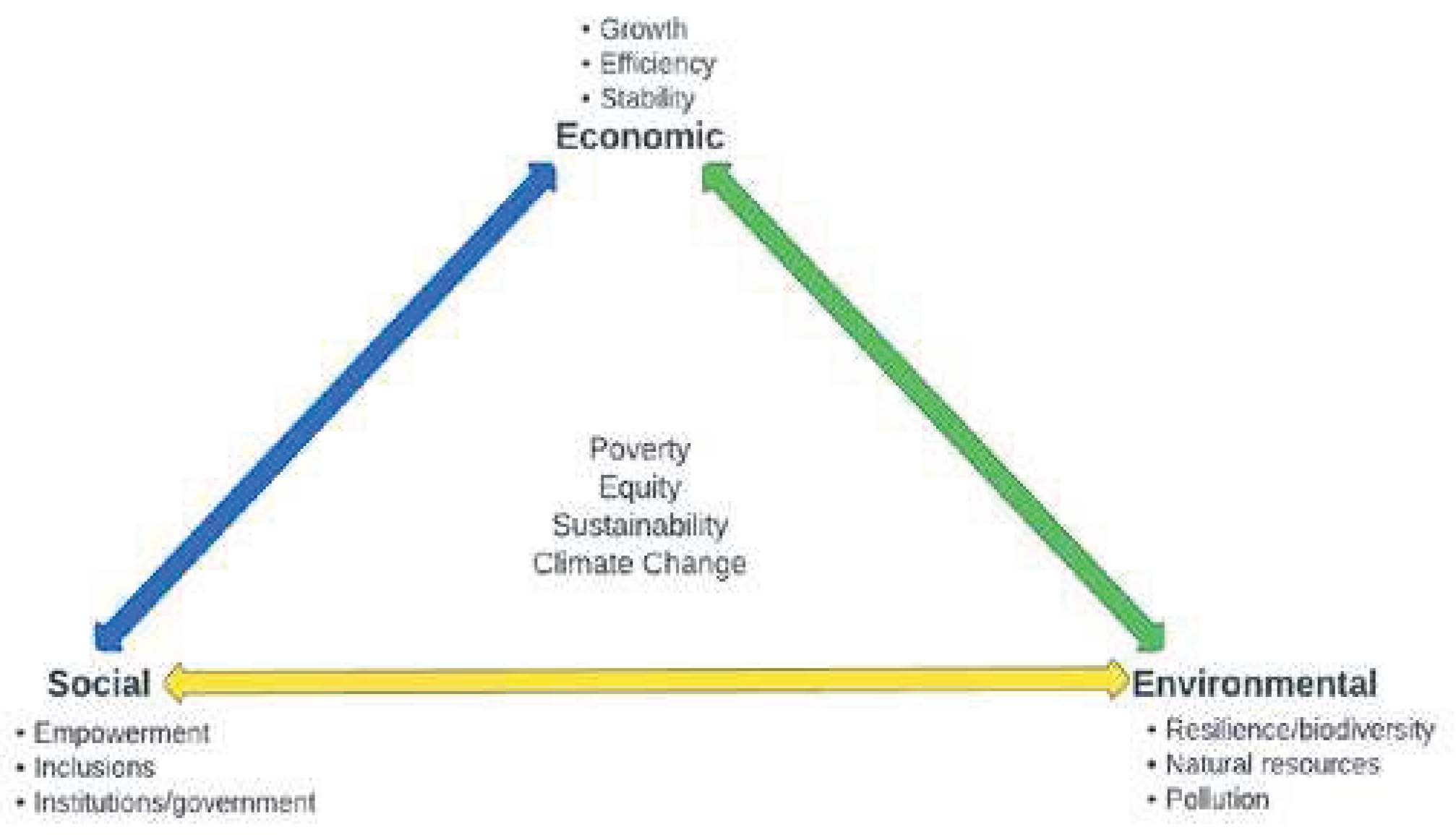
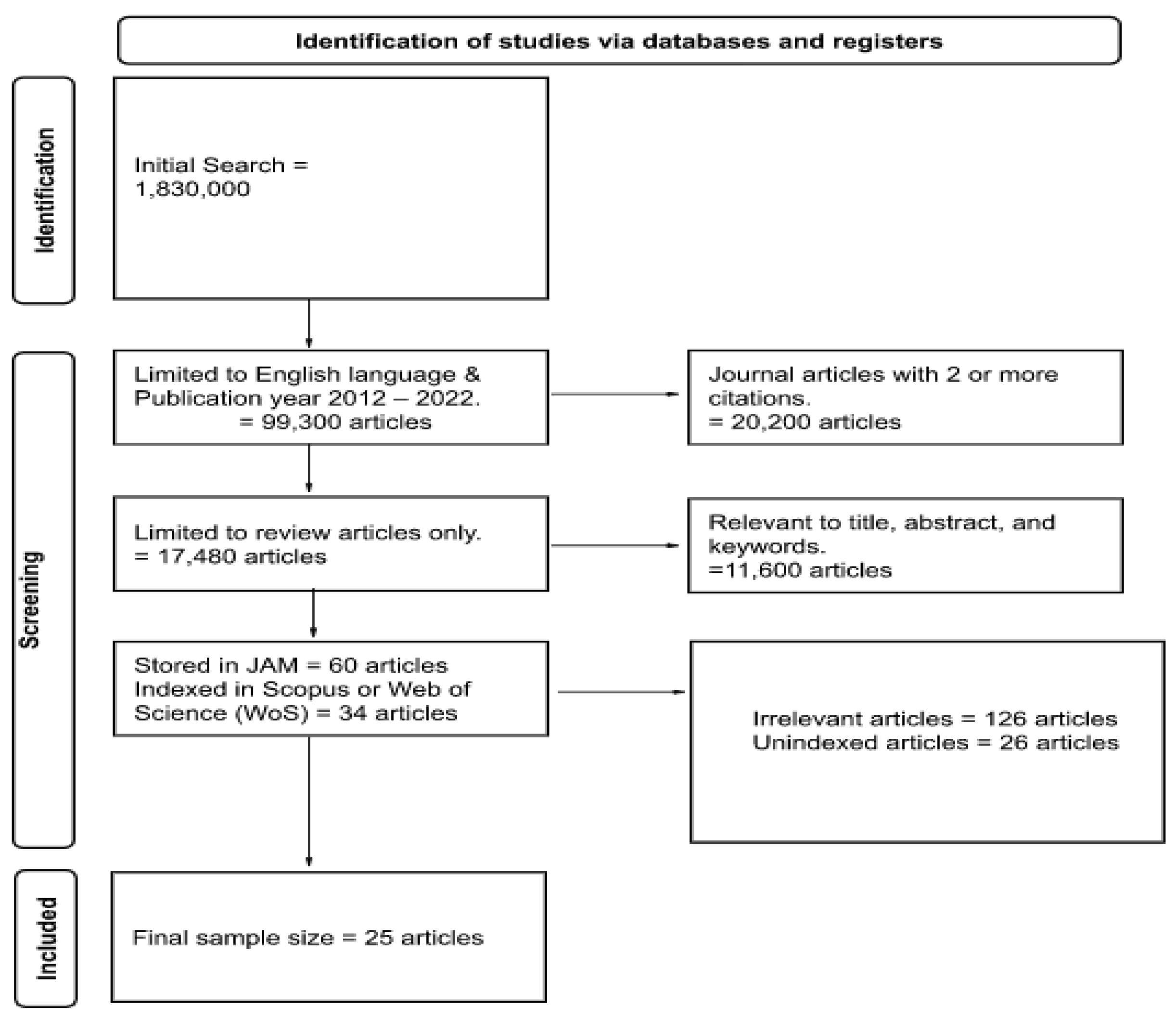
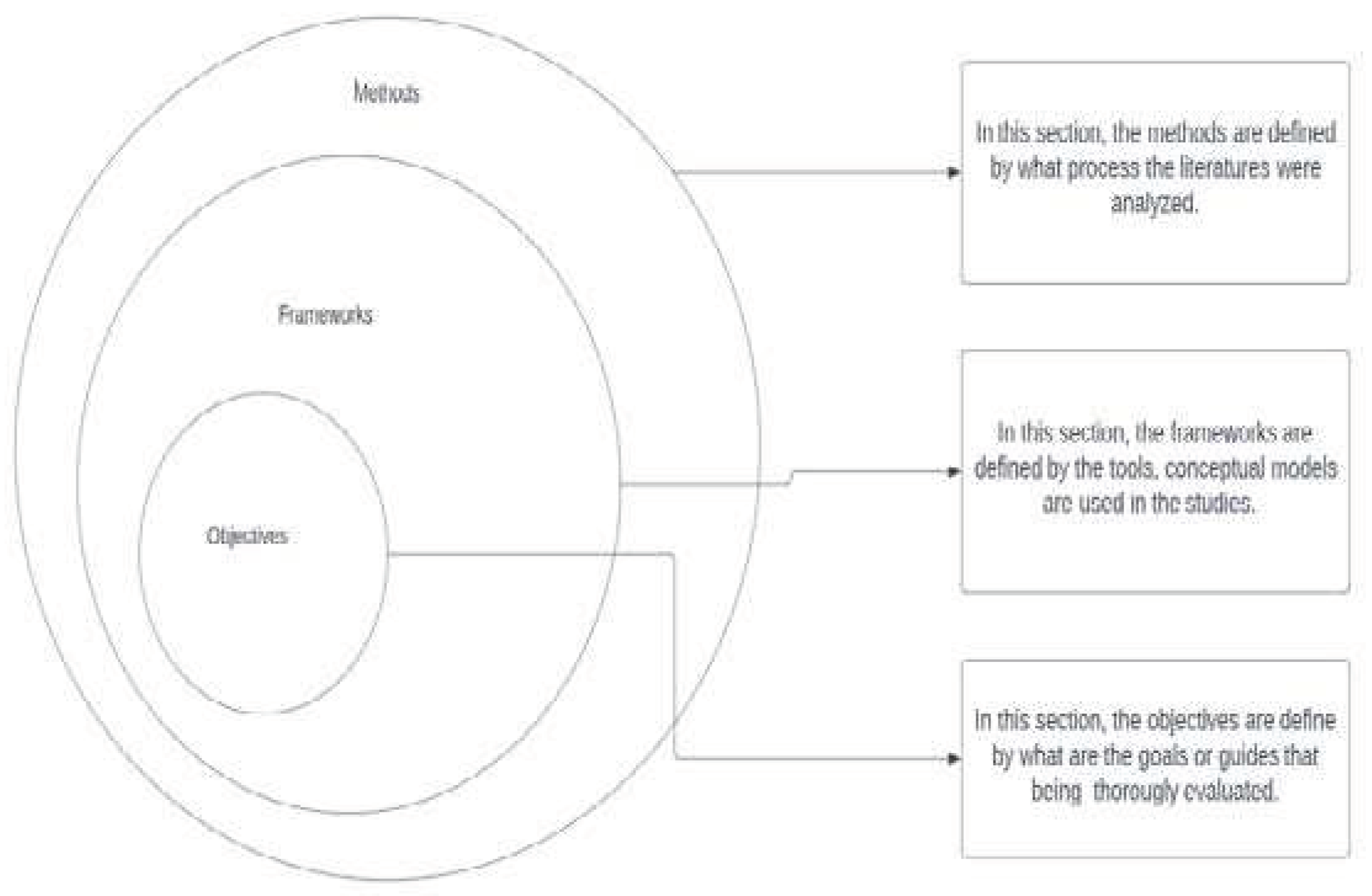
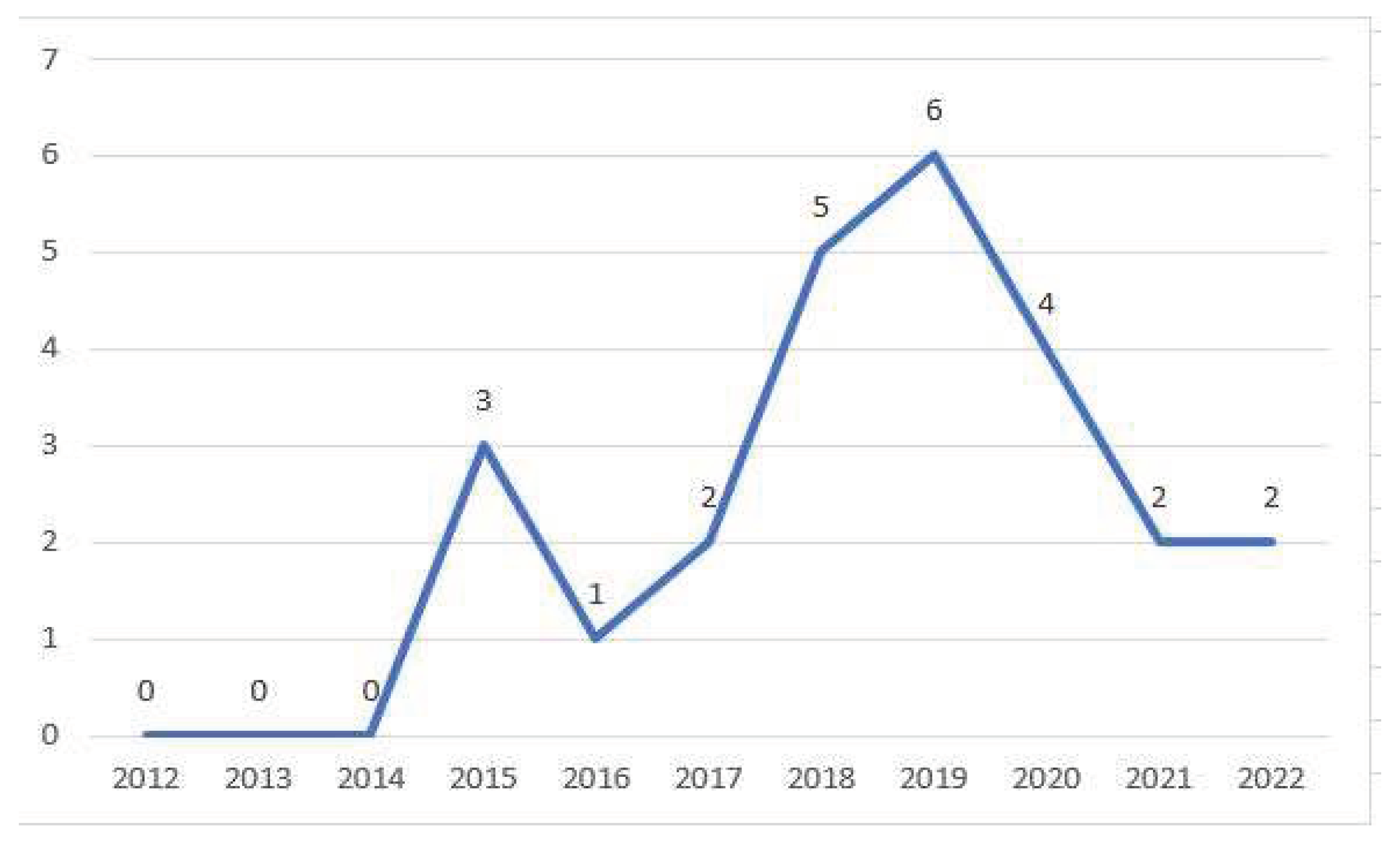
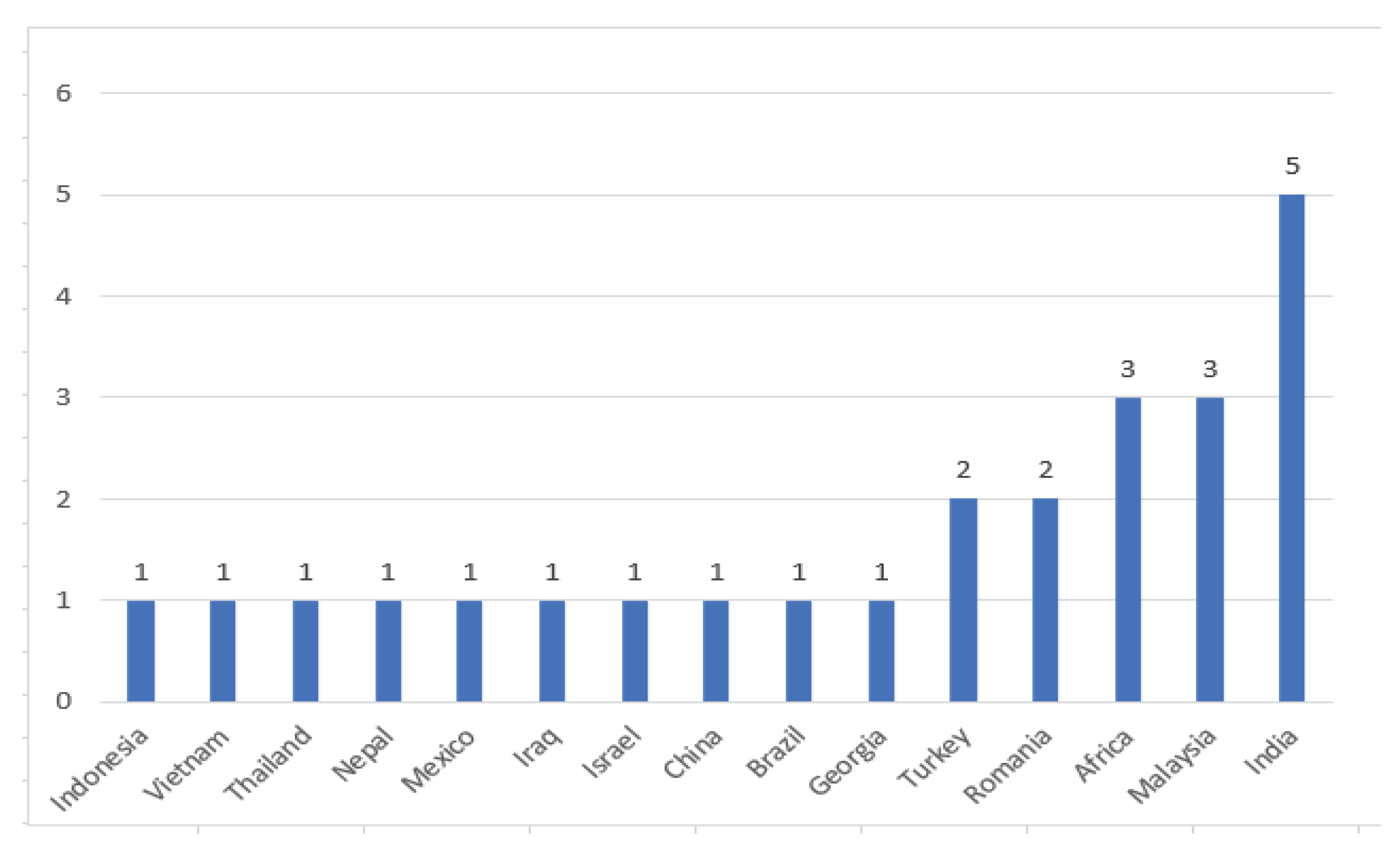
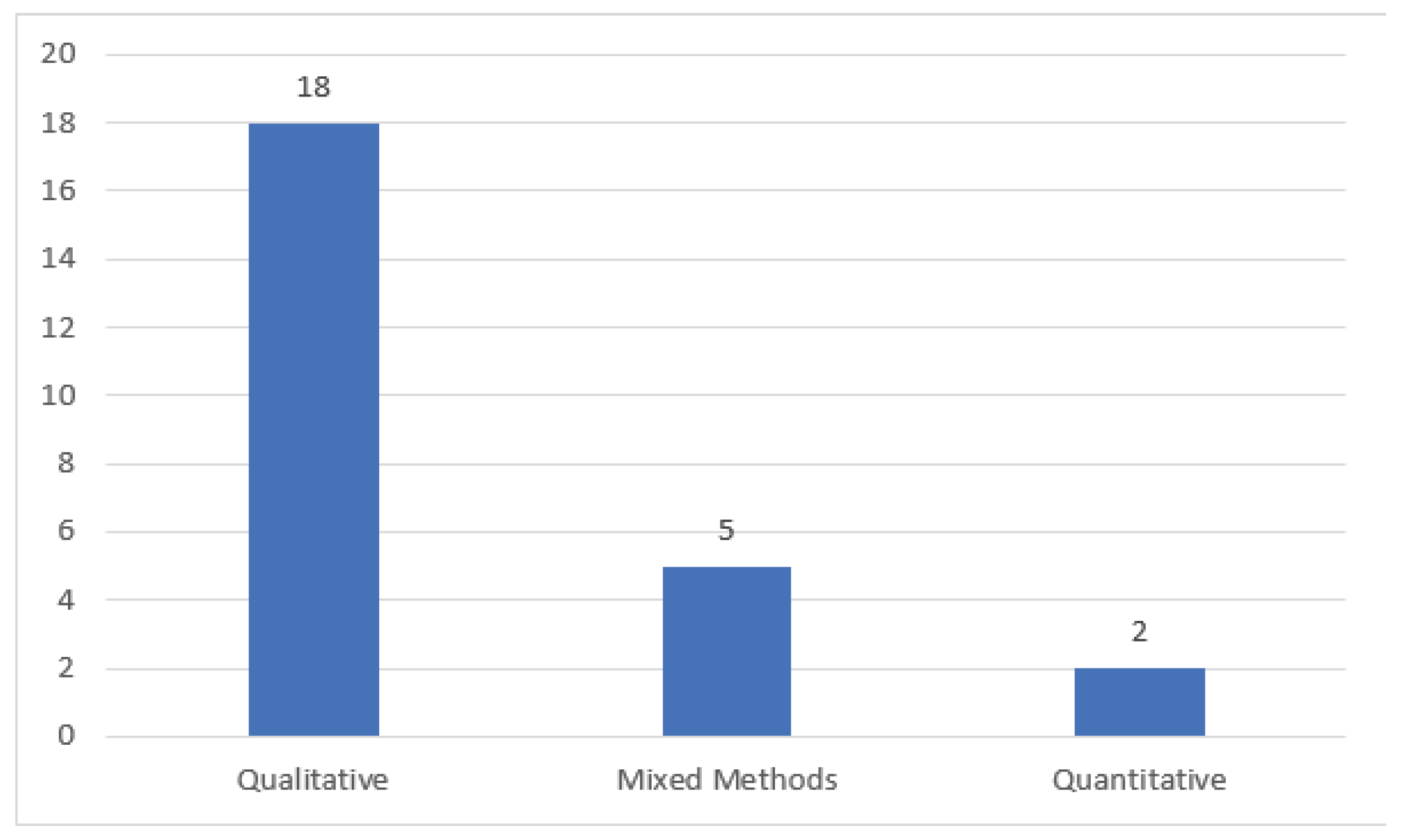
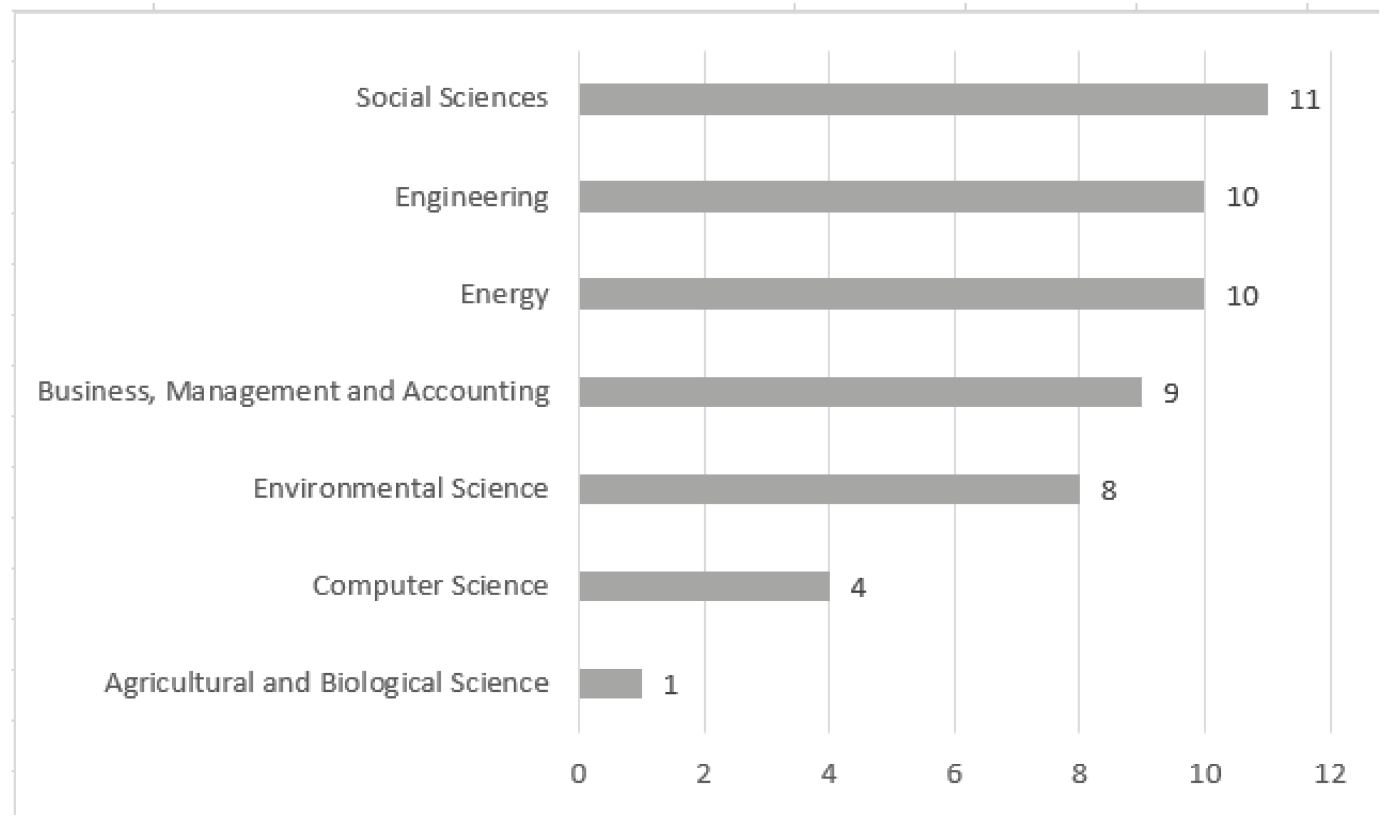
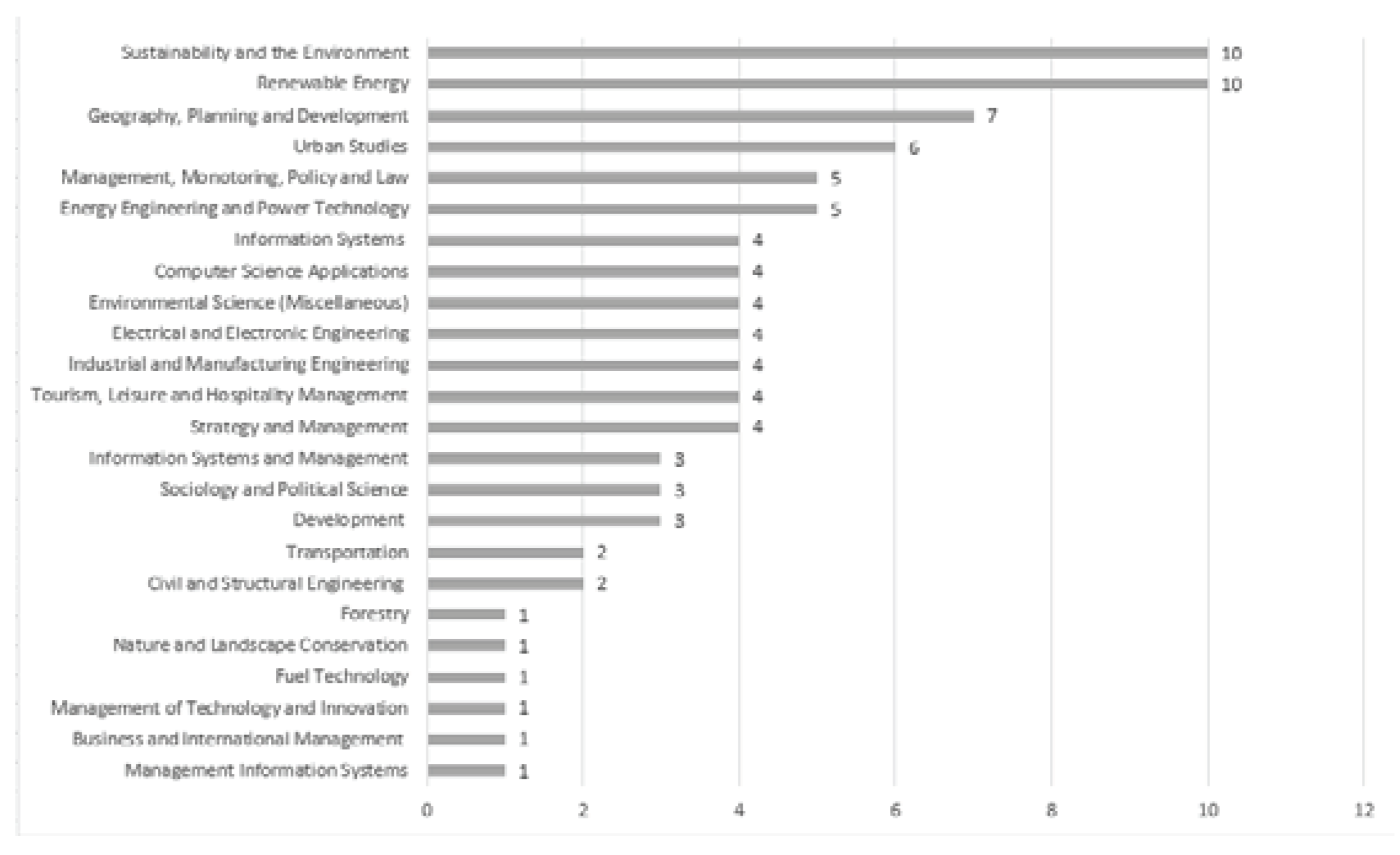
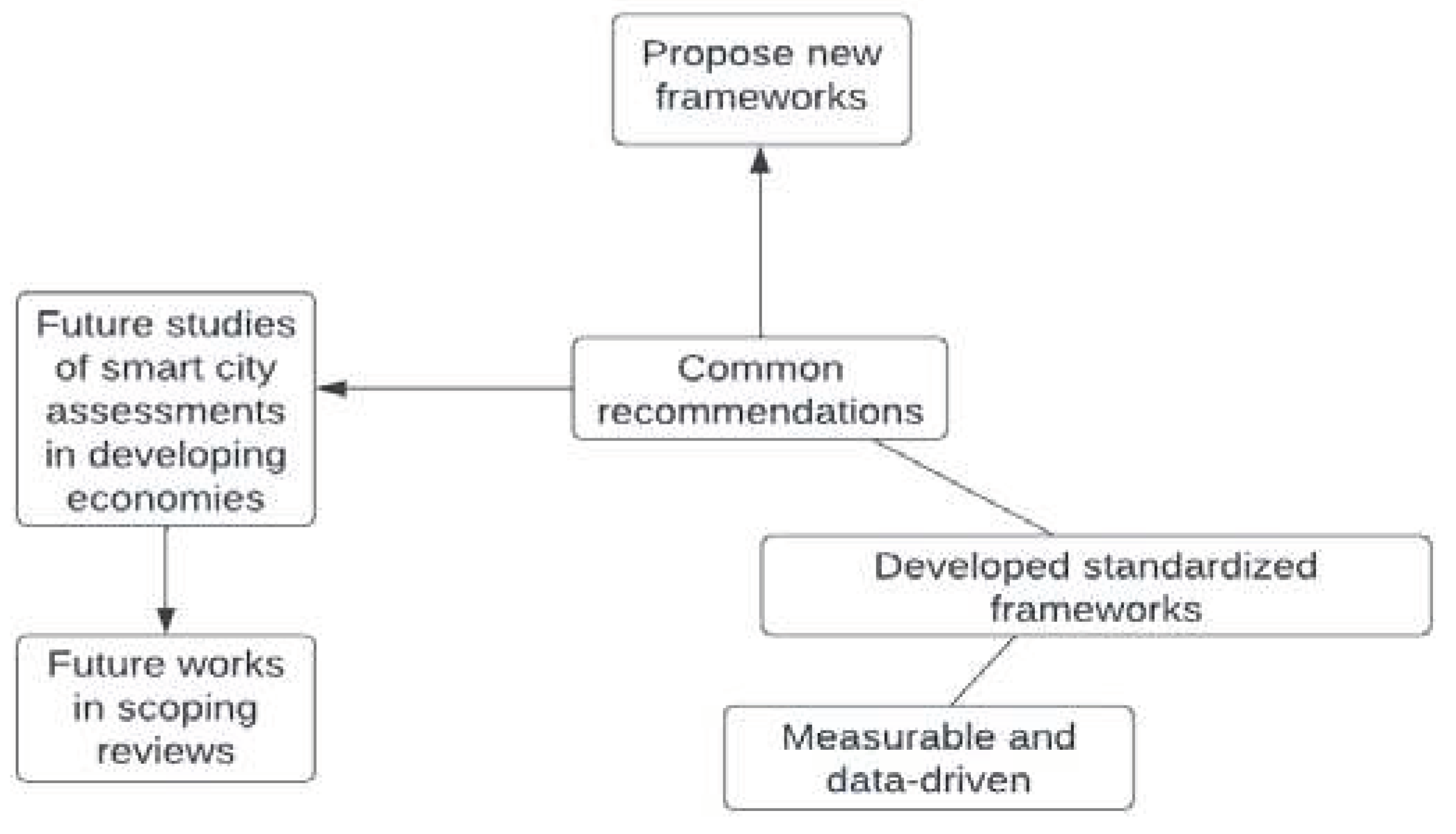
| Keywords | Search strings |
|---|---|
| Smart City [13], [17], [22], [31] | “Smart cities” OR “smart-city” OR “smart-cities” OR “sustainable city” OR “Sustainable urban developments” OR “eco-city” OR “digital cities” OR “intelligent city” OR “livable city” |
| Smart City Assessment [1,5,13,14,21,62] | “Smart city assessments” OR “sustainable city assessment” OR “sustainable city assessments” OR “urban city assessment” OR “urban city assessments” OR “emerging city evaluations” |
| Developing Economies [4,13, 22,34,69,77,78] | “Developing economy” OR “developing countries” OR “developing country” OR “developing society” OR “developing societies” OR “middle income countries” OR “emerging city” OR “emerging markets” OR “less developed countries” |
| Assessment Tools [ 1,8,13,21,31,62,98] | “Assessment Tool” OR “evaluation tool” OR “evaluation tools” |
| Journal Publications | Number of Studies |
|---|---|
| Cities | 4 |
| Journal of Cleaner Production | 3 |
| Sustainable Cities and Societies | 3 |
| Energies | 3 |
| Technological Forecasting & Social Change | 3 |
| Smart Cities | 2 |
| Sustainability | 2 |
| International Journal of Information Management | 2 |
| Journal of Urban Technology | 2 |
| Urban Research & Practice | 1 |
| IEEE TRANSACTIONS ON ENGINEERING MANAGEMENT | 1 |
| IOP Conference Series: Materials Science and Engineering | 1 |
| Jurnal Teknologi | 1 |
| Journal of Urban Design | 1 |
| City, Culture and Society | 1 |
| Energy Research & Social Science | 1 |
| Land Use Policy | 1 |
| Environmental Impact Assessment Review | 1 |
| Objectives | No. of Journals |
|---|---|
| Industrial Development | 8 [1], [13], [14], [29]– [33] |
| Enable IoT in cities | 8 [4], [20], [21], [28], [34]– [37] |
| Develop Sustainable Living | 5 [7], [13], [38]– [40] |
| Energy Research | 2 [22], [41] |
| Political Engagement | 2 [35], [42] |
| Methods Used | No. of Journals |
|---|---|
| Conceptual Modeling | 9 [9], [10], [12], [15], [29], [42]– [45] |
| Cognitive Mapping | 7 [19], [25], [27], [46]– [49] |
| Hierarchical method | 4 [6], [16], [17], [50] |
| Best Worst Method | 3 [9], [22], [51] |
| MCDM | 2 [26], [52] |
| Frameworks used | No. of journals |
|---|---|
| ISO 37122:2019 | 6 [1], [4], [5], [25], [43], [53] |
| IoT-Enabled Smart City Frameworks | 5 [13], [28], [38], [44], [71] |
| Smart Cities Index- India | 4 [6], [9], [30], [52] |
| Smart Cities Ranking of European Medium-sized Cities | 3 [29], [44], [54] |
| Community KPIs for the IoT and Smart Cities | 3 [16], [55], [56] |
| Cities in Motion Index | 2 [7], [57] |
| China Smart City Performance | 1 [50] |
| Smart City Governments | 1 [15] |
| Common conclusions | Number of Journals |
|---|---|
| Proposed conceptual models/frameworks | 8 [1], [6], [10], [11], [33], [35], [39], [49] |
| Assessment practices are not yet integrated into official urban planning and management mechanisms and strategies | 5 [1], [9], [26], [44], [48] |
| Performance rankings | 5 [57], [58], [60]– [62] |
| Assess the performance of smart cities | 4 [30], [37], [41], [63] |
| Engagement with stakeholders | 3 [14], [64], [65] |
| Common Limitations | Journal ID |
|---|---|
| Similar frameworks | 10 [16], [22], [32], [34], [39], [40], [61], [62], [68], [69] |
| Lack of standardization | 8 [1], [4], [9], [43], [51], [57], [66], [70] |
| Limited studies in scoping reviews | 4 [5], [12], [18], [59] |
| Limited sample size | 3 [30], [41], [52] |
Disclaimer/Publisher’s Note: The statements, opinions and data contained in all publications are solely those of the individual author(s) and contributor(s) and not of MDPI and/or the editor(s). MDPI and/or the editor(s) disclaim responsibility for any injury to people or property resulting from any ideas, methods, instructions or products referred to in the content. |
© 2023 by the authors. Licensee MDPI, Basel, Switzerland. This article is an open access article distributed under the terms and conditions of the Creative Commons Attribution (CC BY) license (http://creativecommons.org/licenses/by/4.0/).





